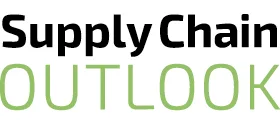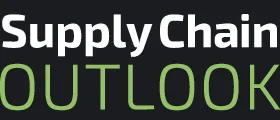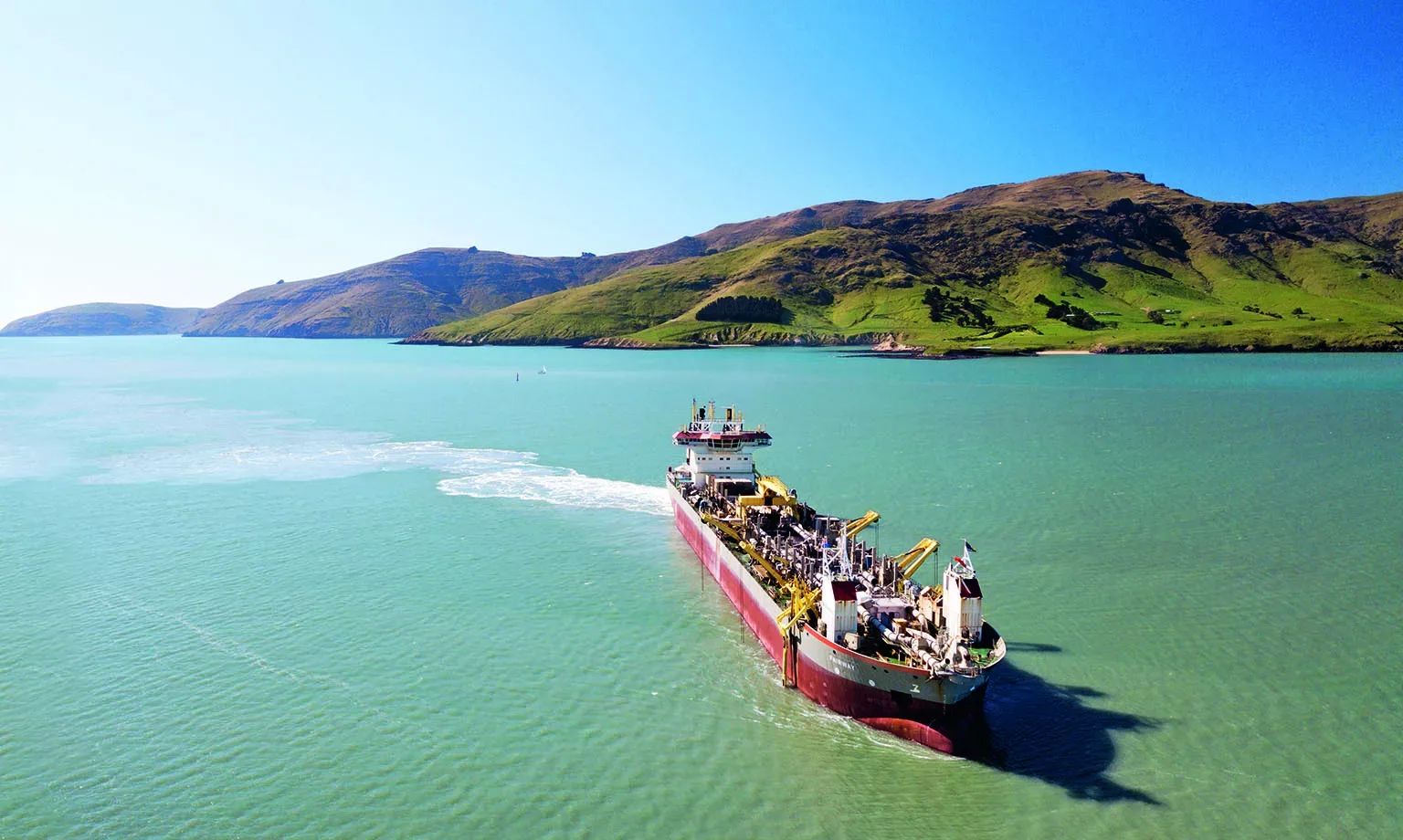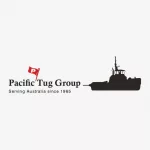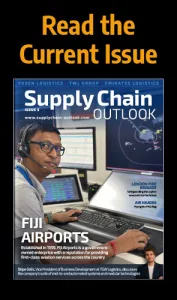Operating on the cutting edge of the dredging and marine contracting industry, Boskalis Australia offers turnkey solutions for its vast range of clients. General Manager, Alwin van den Bosch, tells us more about the company’s activities.
DREDGING NEW HORIZONS
Founded over a century ago in the Netherlands, Boskalis was established as a leading dredging company that devotedly made the country’s ports and rivers accessible and protected the Netherlands through various coastal protection works.
After experiencing considerable success in this area, Boskalis gradually evolved and expanded to become a globally operating dredging and offshore contractor and maritime services provider, paving the way for the organisation’s future success.
Indeed, Boskalis’ offshore energy division is now equally large in terms of revenue as the company’s dredging division.
The offshore energy division involves a plethora of heavy marine transport services using semi-submersible vessels and ocean-going tugs for the transport of floating production storage and offloading (FPSO) units, and offshore platforms and monopiles for offshore windfarms, to name a few.
In addition, Boskalis leverages a fleet of state-of-the-art crane vessels, anchor handling tugs, construction support vessels, rock installation vessels, cable-laying vessels, diving support vessels, and survey vessels to support the offshore energy sector, including the construction of offshore wind parks, the installation and decommissioning of offshore platforms, offshore cable installation, survey works, and much more.
However, Boskalis also still remains very active in the dredging industry through the execution of many projects related to port development, maintenance, land reclamation, and coastal protection also in Australia.
As a key subsidiary of the broader organisation, Boskalis Australia was established in 2002. Before that time, Boskalis operated for many years under the Westham Dredging name. All in all, Boskalis has been operating for over 50 years in Australia, New Zealand, and the Pacific Islands.
“Boskalis Australia has a long history across the nation, and through our mother company we are capable of providing a wide array of services,” introduces General Manager, Alwin van den Bosch.
“We can offer a total package for our clients, providing them with bountiful knowledge and expertise to ensure the success of their projects,” he adds.
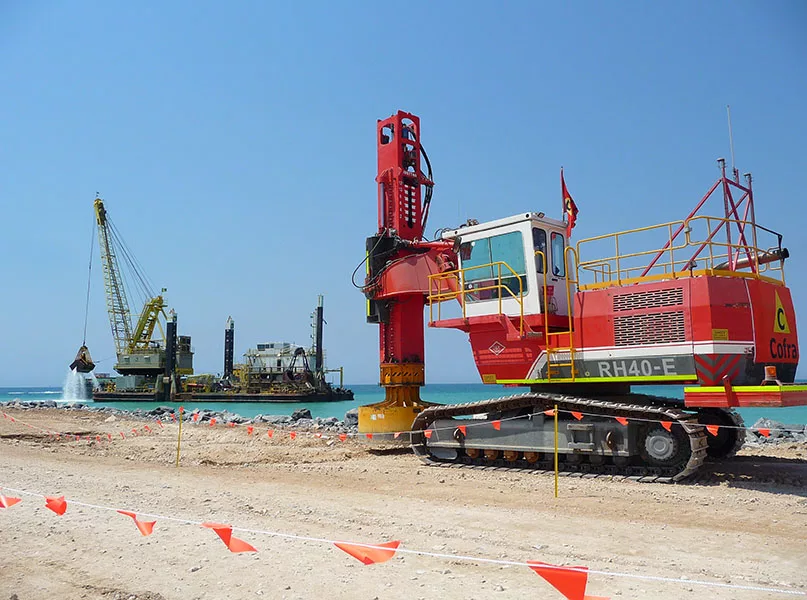
DREDGING AND MARINE EXPERTS
Headquartered in West Perth, with supporting offices in Sydney, New South Wales (NSW), Boskalis Australia’s regional footprint also spans New Zealand and the Pacific Islands.
Across its Oceania portfolio, the business primarily conducts capital and maintenance dredging for port authorities, as well as subsea drilling and blasting. It also works with mining and oil and gas companies undertaking dredging works to ensure navigable water at their terminals and executes seabed intervention works for pipeline installation projects.
Boskalis Australia has been active in many of the nation’s biggest ports, maintaining various channel depths, whilst also deepening and expanding ports in areas such as Melbourne, Victoria; Newcastle, NSW; Fremantle, Western Australia (WA); and Adelaide, South Australia.
For the installation of pipelines in areas such as the liquefied natural gas (LNG) industry, the company has undertaken various so-called seabed intervention activities, comprising dredging to create a trench and rock installation to protect the installed pipeline, alongside onshore works associated with pulling the pipeline onto the shore.
Boskalis Australia’s standout operations over the years include the Gorgon gas project on Barrow Island, situated on the northwest coast of WA. A key oil and gas venture, the company assisted in the development of a LNG process facility.
Alongside this impressive feat, Boskalis Australia is proud to have assisted in seabed intervention and shore crossing activities for the Scarborough Energy Project export gas pipeline in WA.
“This has been quite a challenging project, but we’ve combined many areas of our expertise in order to complete it,” shares Alwin van den Bosch.
Amongst other things, the company developed a specialised tool for deep sea excavation at approximately 600 metres of water depth which was operated from one of its construction support vessels.
Furthermore, Boskalis Australia conducted rock installation works with a fallpipe vessel to protect the pipeline and install berms to allow the pipeline to cross existing underwater infrastructure.
The diversity found in Boskalis Australia’s scope of activities demonstrates its efficiency and prowess in utilising different types of vessels and equipment to execute highly technical and complex projects.
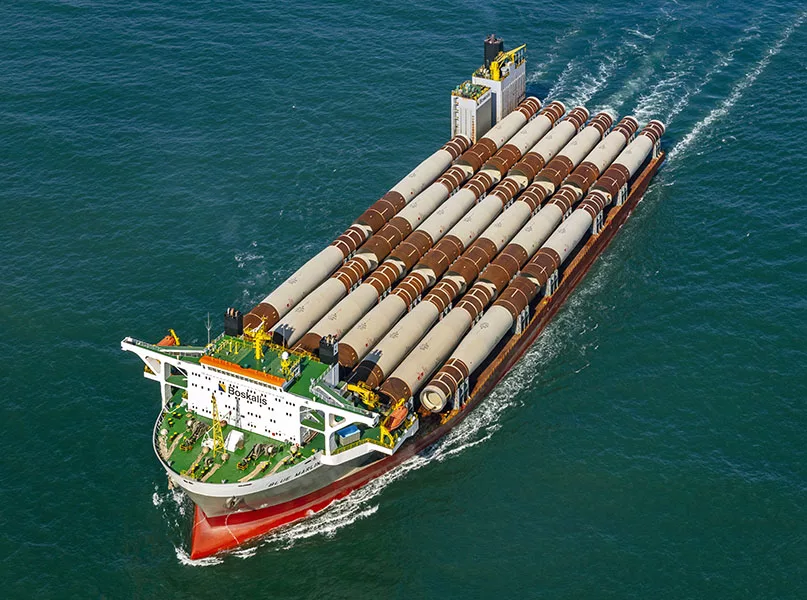
ENVIRONMENTAL COMPLIANCE
Boskalis Australia has witnessed a spectrum of changes in the supply chain industry since its inception, the most notable being an extended focus on renewable energy.
Indeed, the company has seen many offshore wind developments across Australia, particularly on the east coast, whilst similar developments on the west coast are in the early stages.
“The rise of renewable energy is certainly something which is of interest to us and is typical of the world’s changing perception on how it deals with climate change,” insights Alwin van den Bosch.
For example, the development around renewables such as green hydrogen require associated infrastructures to be developed across port facilities, which of course is of interest to Boskalis Australia.
“The development of offshore wind parks requires the expansion or redevelopment of existing ports, if not the construction of completely new greenfield ports. This can involve dredging works to allow access for the construction vessels required for the offshore wind park construction.”
The company also implements many eco-friendly measures to align with Australia’s increasing prioritisation of environmental compliance.
For example, light management is applied to ensure that its vessels do not cause unnecessary disruption to turtle hatchings.
Boskalis Australia has also introduced green valves on vessels to minimise turbidity caused by dredging, and the company has significant experience with water quality monitoring and applying adaptive management to minimise impacts.
Going forward, the company is preparing for the use of (green) methanol as an alternative fuel. The latest newbuild, a large 31,000 cubic metre (cbm) trailing suction hopper dredger, which is projected for launch in mid-2026, will be prepared for this.
Biosecurity is also a crucial focus in Australia, making it imperative that the company does all it can to avoid the introduction of foreign species into the nation’s waters.
More from Supply Chain Outlook
The Gorgon gas project, for instance, was undertaken in a Class A nature reserve. As such, Boskalis Australia took extensive measures to meet the even more stringent biosecurity requirements which applied to this project.
“Certain steps were taken to ensure we didn’t introduce any foreign species. This involved extensively cleaning marine and land-based equipment, as well as wrapping equipment during transportation to prevent any instances of contamination during mobilisation,” recalls Alwin van den Bosch.
As such, Boskalis Australia works hard to ensure its projects meet the required environmental compliance standards, having the least possible impact on the nation’s marine life.
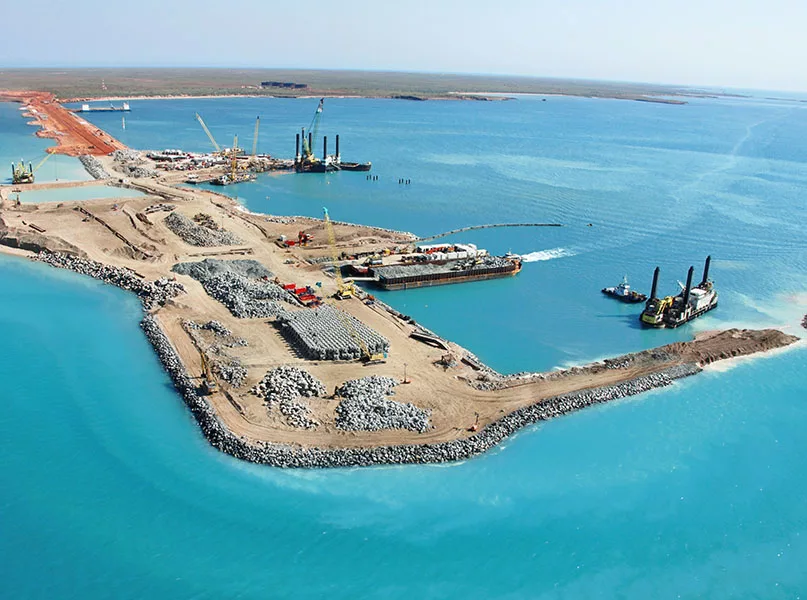
STREAMLINING OPERATIONS
In order to guarantee streamlined global operations for its clients, the company utilises Boskalis’ centralised vessel management system that monitors and checks that its fleet is being properly prepared and maintained according to specific project requirements.
“We utilise our vessels on an as-needed basis across our projects. In the end, where they are deployed is a commercial decision according to the prospects in that given area.”
Therefore, the centralised vessel management system is also vital in the global distribution of ships, as their deployment is, amongst other things, subject to the distance they would have to travel to reach a potential project.
“If a vessel is in Singapore, for example, it makes sense to send it to Australia rather than the Netherlands.
“However, deployment of a particular vessel also depends on its technical capabilities, as we may need to utilise one that is far away in order to achieve specialist requirements,” Alwin van den Bosch illustrates.
As such, Boskalis’ centralised vessel management system is key to overcoming the logistical complexities of vessel deployment and streamlines the company’s global presence as a result.
Another important element of Boskalis Australia’s proficient execution of projects is its extensive supplier network.
“Throughout the years, we have built strong relationships with our suppliers time and again. We also make use of new partners because each project differs in its requirements and locations,” Alwin van den Bosch comments.
Boskalis Australia likewise looks to the local market for sourcing auxiliary vessels such as tugboats, survey vessels, crew transfer vessels, barges, and more.
Additionally, the company purposefully calls upon the expertise of Australian crew members for its vessels; having an efficient crewing agent with local knowledge is therefore equally as integral.
Local contractors are also leveraged by Boskalis Australia to operate earthmoving equipment on rock loadout facilities, reclamation sites, and other land-based sites, guaranteeing state-of-the-art onshore excavation and earthmoving.
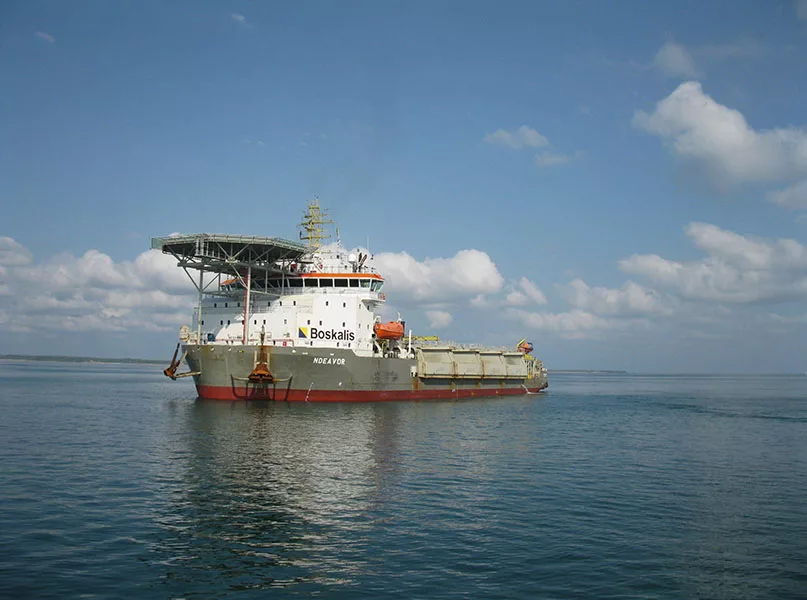
UTILISING LOCAL AND GLOBAL EXPERTISE
Retaining personnel is key to Boskalis Australia, as they are the company’s most valuable asset and possess the required local knowledge to ensure its success.
“The nature of our work can make staff retention challenging as the workload in the country can hugely fluctuate. Fortunately, we can re-employ a number of our local personnel internationally during periods of relative calm and bring them back whenever we execute a project in Australia,” Alwin van den Bosch points out.
“Unfortunately, that is not possible for everyone, however we do see that many of our local team members from previous projects return when another big venture comes up because they enjoy working with us, which I think is a great achievement,” he prides.
In line with its focus on local job opportunities, Boskalis Australia also endeavours to support community causes and initiatives, including festivals, community football teams, and neighbourhood clean-ups.
Due to its historical achievements of working and building with nature, the broader Boskalis organisation has also created many solutions to adapt to the environment.
International examples include the innovative and extensive Sand Motor beach nourishment in the Netherlands.
“Typically, you would apply this along the coast, however, with this particular project, nourishment was applied to one specific location and then allowed to naturally disperse along the coast, thereby minimising impact,” finishes Alwin van den Bosch.
This achievement perfectly surmises Boskalis, and by extension, Boskalis Australia’s overall objective of participating in various environmental initiatives that align with the country’s goals in renewable energy, playing an important role in Australia’s dedicated protection of marine life.
